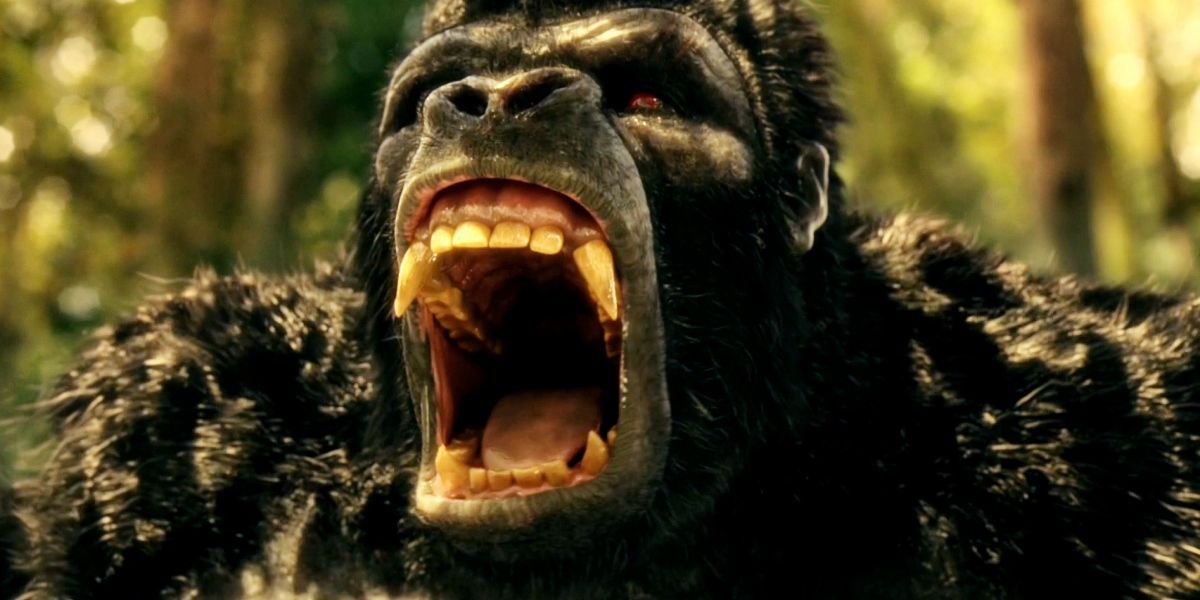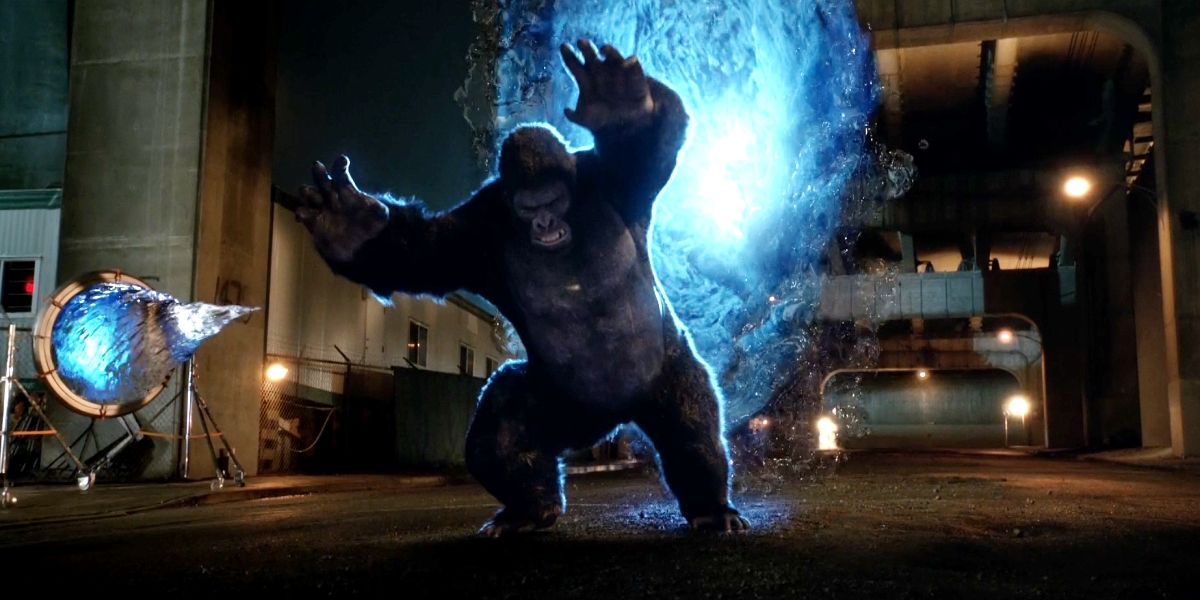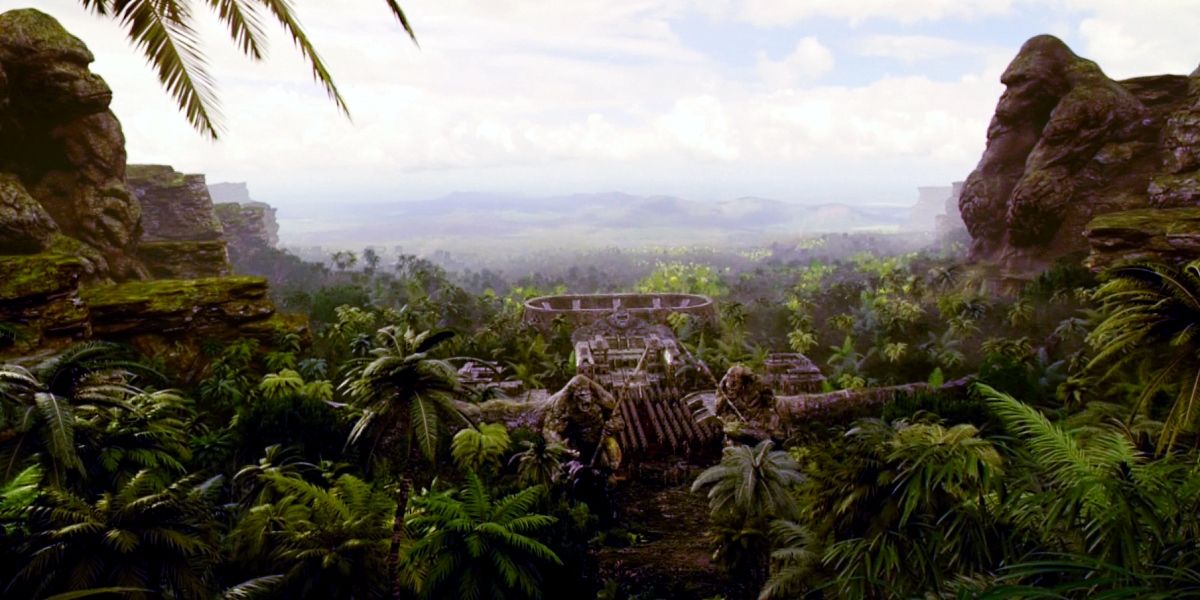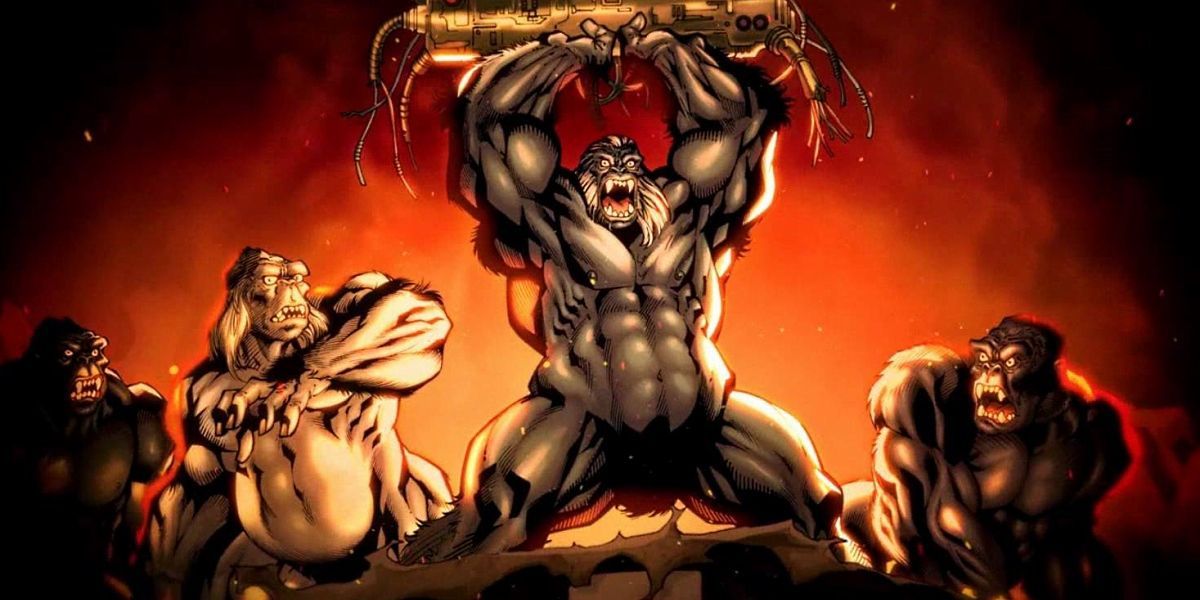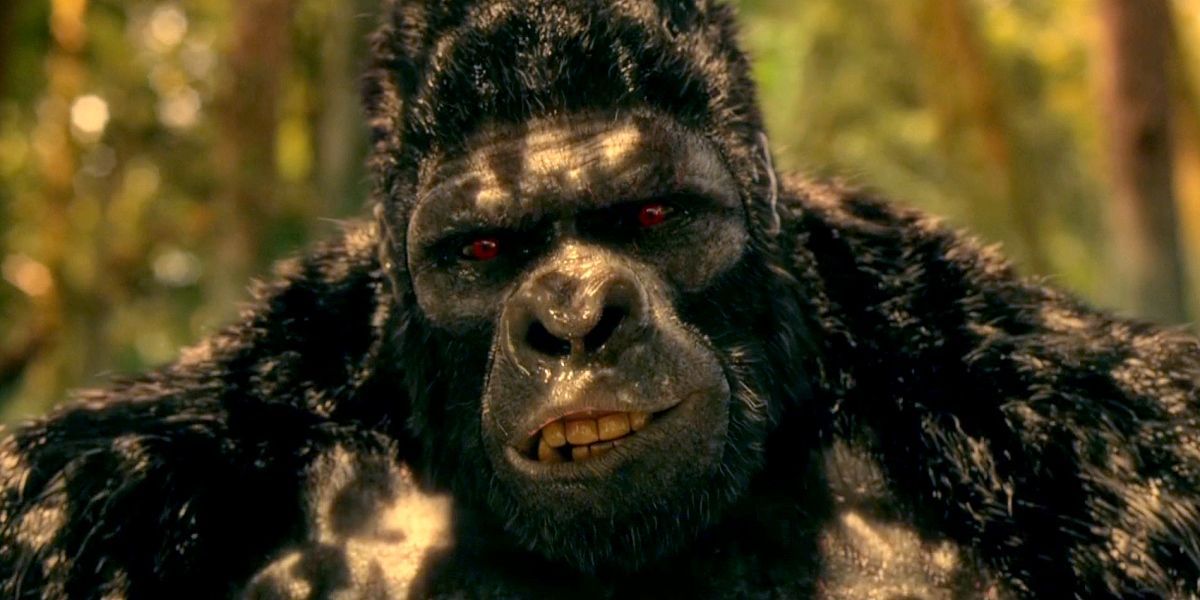[WARNING: This article contains spoilers for The Flash Season 2, Episode 7]
-
When a TV show decides to tackle a superhero property, fans know it will be forced to face a tough decision: tailor it to a grounded, more practical approach, or adapt it all and hope for the best. When The Flash was launched off of Arrow's realistic premise and style, comic fans thought they knew what they were in for. But now that Gorilla Grodd returned to Central City, only to be dealt with thanks to a parallel Earth, things have clearly changed.
For devoted fans of DC Comics (and past issues of "The Flash" in particular), the episode's ominous closing scene was easy to understand, alluding to locations, characters and storylines long established in the DC Comics Universe. But casual viewers were probably left with nothing but questions.
There's little chance that the show will be answering them any time soon, with a superspeed demon terrorizing Barry and his friends the top priority for now. So we thought it best to break down the comic book lore at work in the closing jungle scene, and believe us: Gorilla Grodd is just the tip of the iceberg when it comes to Gorilla City.
What Happened
First, a quick breakdown of the episode. "Gorilla Warfare" played out as one would expect a story hinging on a super-intelligent, lonely gorilla to: Grodd yearned for another of his kind, but was driven to desperation and eventually violence. Harrison Wells realized that one "breach" between the show's world and his parallel Earth could take Grodd off of their hands, transporting him to somewhere he wouldn't be driven to kill droves of innocent people. Somewhere set aside for animals - apes, as it turns out - who have suffered similar trauma, and as Wells put it, "the closest to home he'll ever get."
After being shoved into the breach the telepathic gorilla emerged into a tropical rainforest in the heart of Earth-2's African continent. After gaining his senses, Grodd stepped out into a shocking vista, marked by what appeared to be mountains carved into the image of gorillas, large stone structures in the distance adorned with similar smaller statues, apparently making up a modestly sized walled city.
And... that was it. No explanation offered for where he found himself, what was behind the stone figures, and who he might find to end his loneliness. But comic book aficionados saw something far more concrete.
Welcome to Gorilla City
The name is fairly self-explanatory here, and the final scene is essentially one massive mod to the DC Comics universe (and should be taken as just that for now). In the DC Comics continuity, Gorilla City is, as the show reveals, a large community of apes concealed deep in the jungles of Africa. You see, while Gorilla Grodd may have military research and a particle accelerator explosion to thank for his telepathy, the comics had a very, very different origin. Not only did his powers come from a meteorite/crashed alien spaceship, the hyper intelligence was bestowed upon multiple apes.
The group soon founded their own community - like every budding civilization before them - and put their heads together, recruiting even more apes into the fold. Before long, their intelligence was revealed to be far more evolved than humans, creating technology that was decades, if not centuries ahead of the rest of the world. Still holding onto mistrust of their human brethren, that technology was used to hide Gorilla City from the outside world so they could be left to evolve their society in private. Unless one of their citizens turned out to be bent on global domination.
If the episode's ending is to be taken at face value, it seems that this version of Gorilla City is just starting out in the Flash/Arrow universe's Earth-2. Harrison Wells knowing of Gorilla City's existence at all, and the fact that Grodd could stumble upon it shows the original story isn't being followed to the letter. Considering that Grodd has been dealt with, and that Earth-2's reality hasn't been seen in any substantial way, it's probably not worth examining the ramifications of such a change just yet. In other words: let's just let Grodd have his happy ending for now.
Grodd's No Longer Alone
Even though The Flash doesn't deliver any more insight into the city, the comics offer a fairly consistent description. Gorilla City and its intelligent apes are led by a single monarch - fair warning: from here on out, there are going to be plenty of parallels between Gorilla City and the settlement seen in the recent Dawn of the Planet of the Apes. Despite their intelligence, the apes still cling to a tribal and family-first mentality, which has brought them into conflict with a number of outsiders seeking to manipulate the power dynamic at work (not to mention plenty of assassination plots and power plays from within their ranks).
The Flash may not plan on spending much time in Gorilla City, instead taking a need to get rid of Grodd and turning it into a chance at a thrilling easter egg for DC fans (if only they had a universe and time-jumping spinoff TV show in the works...). Even so, it's worth knowing that Grodd finds himself walking into a society filled with influential figures associated with some of DC's major players:
- King Solovar: the peaceful, wise leader of Gorilla City who, just like Grodd, has powers of telepathy. Unfortunately, Solovar was eventually killed in a plot by Grodd to take over the throne (but not before exposing the city to become a member of the United Nations).
- King Ulgo: Solovar's assassin (and cousin) who briefly took the throne and turned the UN and the Justice League into apes.
- King Nnamdi: Solovar's son and eventual successor to the throne, who was also gifted with telepathy.
- Doctor Zaius: the city's leading scientist (that really is his name).
- Sam Simeon: Gorilla Grodd's grandson, and the star of his own comedy series in which he works as a private eye when not working as a comic artist for "DZ Comics."
- Tolifhar: the former head of Grodd's Gorilla Knights, a squad of genetically modified albino apes built to fight superheroes. Eventually, Tolifhar was defeated by Wonder Woman, with her honorable behavior turning him and his apes to the side of good.
But there's a reason Grodd became a fan-favorite supervillain, and it certainly isn't a tragic, sympathetic backstory. In the comics continuity, Grodd's as power-hungry and ruthless as they come, while the show treated him like a victim of Harrison Wells (more precisely, Eobard Thawne). We hate to ruin a happy ending, but if The CW's version of events stays true to the comics, Grodd's arrival outside the city's walls - complete with menacing roar - means his fellow apes are in for a terrible time.
-
We can't say that The Flash seems set to further explore Grodd's exploits on Earth-2, or any other DC character from the parallel world. But should they? Do you think leaving Grodd's story hanging after just two fights is selling the character short, or was it a good balance of fan service and sticking to the show's larger conflict? Share your thoughts in the comments!
Next: 10 Gorilla Grodd Facts Flash Fans Should Know
The Flash airs Tuesdays @8pm on The CW.

